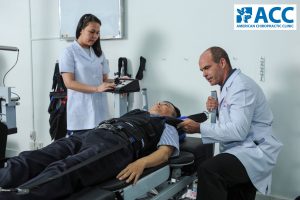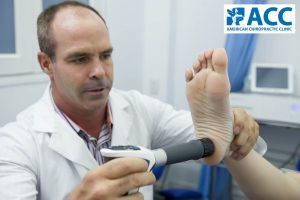Contents
Aging is a normal process of the human body. Along with the skin, hair, eyes; your spinal disk can also degenerate. The degenerative disk disease may get better over time or deteriorate if it is linked to other spinal problems. Thus, it needs to be cured. Getting to know the potential symptoms is important to effectively treat disk degeneration.
Each body can have different symptoms when being diagnosed with disk degeneration. Some people do not notice any change in the body that shows signs of a degenerative disk while others suffer severe pain or numbness that prohibits them from even moving theirs neck or backs. How about you? Have you ever experienced at least one of the symptoms below?
Pain occurring mostly in the back or neck
The disk in the back or neck are more likely to get injured or degenerated due to constant movements in the backs or necks, and disk degeneration is most likely to occur in these area. In this case, pain is the most obvious symptom.
- You may feel pain in the back or in the neck which is prolonged and continuous. The level of pain is different from person to person. It can range from slight to severe pain.
- The pain from disk degeneration is chronic. The severe pain can suddenly happen and last for a few days or even months turning into chronic pain condition.
- You may feel your chronic pain is severe, but in fact the severe case is rare.
Pain can be activities related, such as:
- The pain usually gets worse when you lift heavy objects, bend your back forward, backward, or twisting at the waist.
- You may feel pain when you are sitting, standing, or even lying down.
- You may feel that pain gets relieved when you walk or run.
- Other positions that compound the pain are such as looking at the monitor, texting, and which seems to lessen when you change your position frequently.
Pain may travel
Although the pain may mostly be felt in the back or neck, being the directly affected area, it can also travel to the legs, shoulders, hands, arms, feet, or fingers. When the disk degenerates, the nerve roots can be irritated and sensitive. The pain can move along the nerve roots to affect other parts in the body. You may sometimes even feel that the pain in these parts is more severe than in the neck or back.
Numbness
Numbness can also happen. You may have numbness in the legs, arms, hands because the nerve roots that are related to these parts are affected. The numbness may be small or may be severe that you cannot handle things.
Although these listed above are most common symptoms of disk degeneration, there may also be people who do not have any of them. However, if you experience at least one of the symptoms, or you feel any changes in your body, you should consider meeting an ACC doctor for early detection and treatment without drugs and surgery.
More information: > Spinal degenerative disease > Disc syndrome: Causes, symptoms & treatments > Cervical spinal degeneration causing numbness






